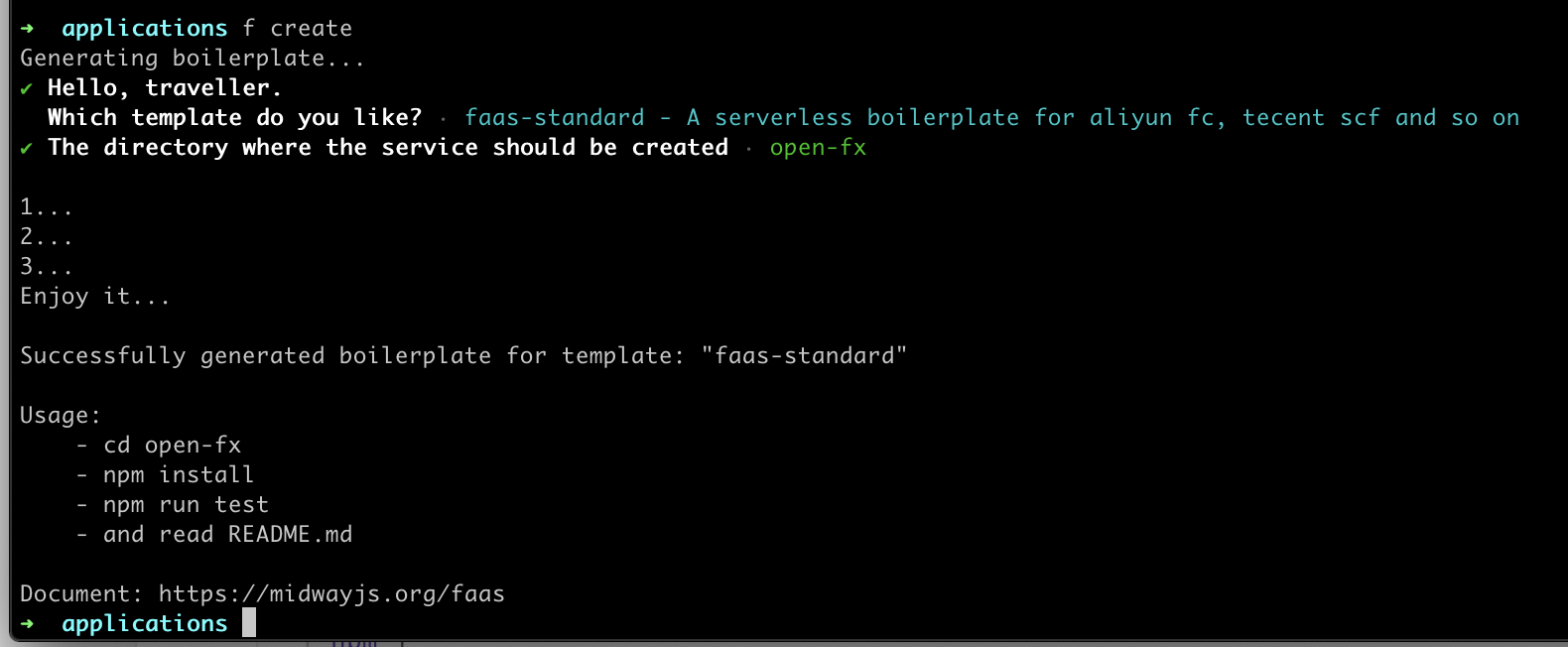-
Notifications
You must be signed in to change notification settings - Fork 578
Standard Function
Lellansin Huang edited this page Aug 3, 2020
·
6 revisions
first of all, just type:
f createThen, let's select faas-standard:
Generating boerplate...
? Hello, traveller.
Which template do you like? …
⊙ Boilerplate
❯ faas-standard - A serverless boilerplate for aliyun fc, tencent scf and so on
faas-layer - A serverless runtime layer boilerplate
⊙ Examples
faas-react - A serverless example with react
faas-vue - A serverless example with vueAs we see:
Install dependencies.
npm installHere is the most simplifying structure of one function. Including standard spec file f.yml and a classic TypeScript project directory.
.
├── f.yml # standard spec file
├── package.json # project dependencies
├── src # resources code dir
│ └── index.ts # function entry, demo
└── tsconfig.json # config for tscIn Midway function is forming by class:
import { Func, Inject, Provide } from '@midwayjs/decorator';
import { FaaSContext, FunctionHandler } from '@midwayjs/faas';
@Provide() // The identity for IoC container to scan
@Func('index.handler') // Function Handler identity
export class IndexService implements FunctionHandler {
@Inject()
ctx: FaaSContext; // Function context
async handler() { // Function body
return 'hello world'; // return value
}
}f.yml is 是函数的定义文件,midway faas 通过这个文件,在构建时生成不同平台所能认识的文件,示例中的文件内容如下。
service:
name: serverless-hello-world ## Service name
provider:
name: aws ## The provider you deploy
functions: ## Definition of functions
index: ## first function name `index`
handler: index.handler ## function entry
events: ## event triggers
- http: ## http trigger with GET /* support
method: get
package: ## built artifact name
artifact: code.zip
$ f invoke -f index:::info
invoke commond is going to invoke local function directly, -f options used to specify function name.
:::
Due to we chose http trigger for this function, so our result would be wrapped by a JSON object.
--------- result start --------
{"headers":{"Content-Type":["application/json; charset=utf-8"],"content-type":"text/plain"},"statusCode":200,"body":"hello world","base64Encoded":false}
--------- result end --------
TODO
